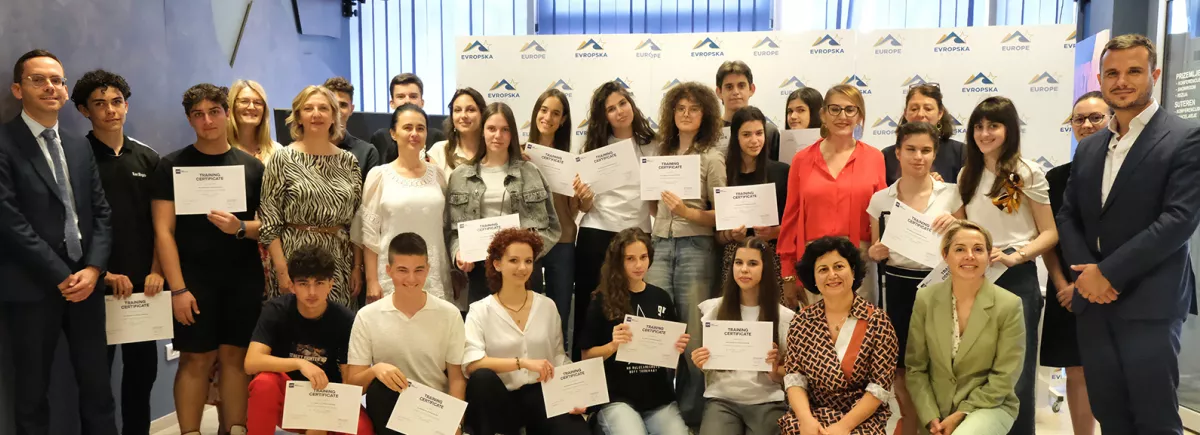
Imagining Europe: Voices from Montenegro’s next generation
Related project
Balkan Voices 2As part of the Balkan Voices 2 project, implemented by CFI, a special event organized by the French Embassy in Montenegro was held at Europe House in Podgorica, in closure of two workshops on journalistic writting from which benefited 32 high school students from francophone schools in Montenegro.
The students, who had previously participated in workshops on media and information literacy, presented essays exploring the European integration of the Western Balkans, a process that continues to shape their future.
Youth Reflections on Europe
In the essays they wrote, students shared a variety of perspectives, oscillating between hope and skepticism. For many, the European Union represents opportunity: the possibility to study abroad, build careers, and live in more stable societies.
As one student wrote: We want to study abroad, gain new skills, and return to improve our country. Others emphasized the risks of brain drain and voiced concerns about whether integration might further weaken local economies or erase cultural identities.
From poetic reflections to socio-political analysis, the essays showed a deep and nuanced understanding of the EU accession process.
Lana Bogavac, for example, described Europe as a promise of shared progress.
A conversation between generations
The event was enriched by the presence of several prominent voices from European and Montenegrin institutions, who engaged directly with the students. Mr. Bertrand Bauchet, Deputy Ambassador, at the French Embassy, emphasized the importance of regional youth in shaping Europe’s democratic future. Ms. Juliette Lequesne, Attaché at the EU Delegation to Montenegro, spoke about the EU’s ongoing support for youth initiatives and encouraged active participation in the integration process.
From a local academic perspective, Assoc. Dr. Predrag Zenović, Chief Negotiator of Montenegro , offered insight into Montenegro’s complex journey toward EU membership. Meanwhile, Miriam Angoni, Project Coordinator of Balkan Voices, highlighted how initiatives like this foster media literacy, civic dialogue and critical thinking - crucial tools for young people navigating a digital and democratic Europe.
Learning and recognition
As part of the event, students participated in a lively quiz about the European Union, further testing their knowledge of European history, institutions, and current affairs. At the end of the day, they were awarded certificates acknowledging the efforts and engagement throughout the media literacy programme.
For these young Montenegrins, the event was not just a chance to present their ideas, it was a space to be heard. By voicing their opinions, asking questions, and imagining new futures, they demonstrated that youth engagement is not just symbolic: it is essential to the democratic process and the EU integration journey.


